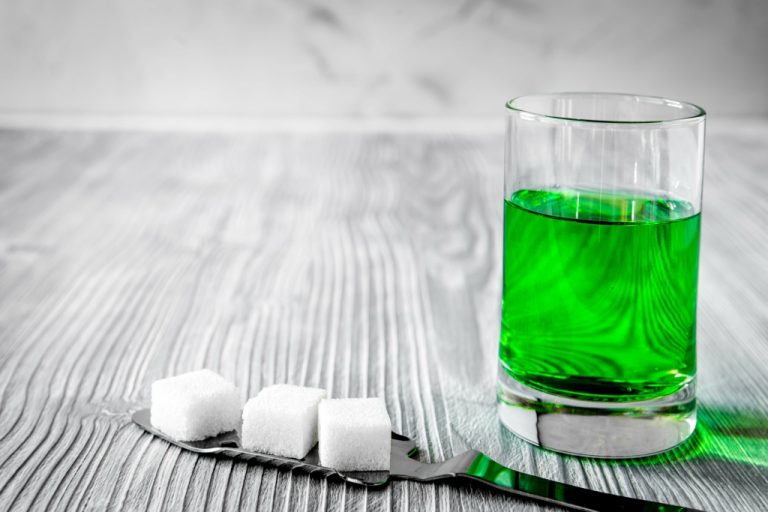Many of these drugs were clinically tested for their potential to improve cognitive function. Although Alcoholics Anonymous they all might have a potential for being misused by the general public looking to enhance their cognitive abilities, the vast majority of these molecules have never reached the market as most of them have been discontinued in Phase II or III clinical trials (7–9). Cognitive enhancer drugs (CEs) are also known as “nootropics” (from the Greek ‘nous’ meaning ‘mind’ and ‘trepein’ meaning ‘turning/bending’), a term initially penned by Corneliu Giurgea when piracetam was found to exhibit memory-enhancing properties in clinical trials (3, 4). Cognitive enhancer drugs such as modafinil improve cognition in very specific ways such that it enhances “pattern recognition memory, digit span recall, and mental digit manipulation” (5).
Misuse of Cognitive Enhancers

CBT sessions are organised according to a structured framework; yet, it is also flexible and can be individualized meaning that CBT psychotherapists navigate each session aligned to the specific needs of their patients. Thus, when CBT psychotherapists or researchers discover more effective interventions techniques for improvement, they can readily integrate these advancements into their practices. CBT psychotherapy sessions work best with the collaboration of the psychotherapists and the patients as this cbt drugs not only increases the effectiveness of treatments but also fosters patients to give continued feedback to the psychotherapist. When the patients have an active role during their treatment process, they can provide meaningful insights about which techniques are the most effective and this feedback not only enhances the effectiveness of CBT treatment but also highlights the inclusion of new developments into the therapeutic process.

Drugs used to treat Mild Cognitive Impairment
By applying the foundational principles of CBT and integrating recent technological and scientific developments into the CBT approach, they promise an empowering treatment journey and long-lasting recovery especially for the individuals who have substance misuse disorders. This preliminary study of combined treatment has limitations, including the aforementioned method of recruiting patients. Additionally, there were strict exclusion criteria, namely having a co-morbid psychiatric diagnosis. In particular, exclusion of major depressive disorder, a disorder that is often co-morbid with GAD, is an important limitation of this study because this exclusion reduces the generalizability of the results to the broad population of GAD patients seen in clinical practice. Another limitation is that conclusions from this study should be restricted to the specific form of CBT treatment that was implemented.
Cognitive Behavioral Therapy for Addiction Treatment
You can encourage the clients to create a worksheet with negative thoughts to change the negative perspective. Let’s dive into the list of CBT group activities for adults recovering from substance use disorder and mental health issues. Finally, the speed with which technology advances far surpasses the pace of empirical evaluation of an intervention, potentially limiting the utility of the technology-based product once efficacy has been demonstrated. To illustrate this point, the original CBT4CBT program developed and evaluated in our two initial randomized trials (Carroll et al., 2008; Carroll et al., 2014) was provided on a DVD/CD-ROM platform, a virtually obsolete technology in today’s world.
- Finally, some of these substances are not illegal (i.e. prescribed medication, food supplements, natural remedies etc.).
- The spread of telehealth treatment for substance use issues will likely continue to grow as evidence of its efficacy increases.
- Ponder what might work best for you and work with your supplier to decide, track progress, and change en route if necessary.
- By understanding these flaws people can learn better ways to cope, relieve their symptoms, and improve their lives.
- CBT sessions are organised according to a structured framework; yet, it is also flexible and can be individualized meaning that CBT psychotherapists navigate each session aligned to the specific needs of their patients.
- Nevertheless, the therapeutic approach is adaptable, serving a diverse range of addictions, which further contributes to its wide application.
Signs and symptoms of addiction
- Discover what addiction awareness month is and join the vital campaign to combat substance abuse.
- Cognitive behavioral therapy (CBT) is a classification of mental health counseling founded in the 1960s by Dr. Aaron T. Beck.
- Hydroxyzine is a remedy allergy med that causes sluggishness as an incidental effect.
- In this way, the cognitive approach not only addresses the symptoms of addiction but also the underlying thought patterns contributing to the disorder, promoting long-term recovery and relapse prevention.
- In a world where addiction remains a pressing challenge, Cognitive Behavioral Therapy provides a beacon of hope for sustainable rehabilitation and the prospect of a healthier future.
- Specific behavioral and cognitive-behavioral interventions administered to individuals are reviewed below, followed by a review of family-based treatments.
According to the World Health Organization (WHO), over 300 million people suffered from depression in 2017. In 2015, 4.4% of the global population was suffering from depression and it was more common among females (5.1%) than males (3.6%). There was an increase in the number of people suffering from depression between 2005 and 2015 by 18.4% (2). Long story short—cognitive behavioral therapy works well for some, but not for everyone. This is the case with all alcoholism and drug treatment approaches, because every person deals with and recovers from addiction in a different way. Because cognitive behavioral therapy is a structured, goal-oriented educational process focused on immediate problems, the process is usually short term.
Although other forms of therapy can be long term and are not time limited, CBT is usually completed in 12 to 16 sessions with the therapist. Research suggests that the skills obtained through CBT are enduring and can also be applied in other areas of an individual’s life as well. Approximately 60% of people who are treated with cognitive behavioral therapy for a substance use problem are able to maintain their recovery for a year. Cognitive behavioral group therapy aims to create a collaborative environment that fosters emotional and mental well-being.
Cell Phone Addiction Statistics & Facts
From a scientific perspective, these interventions offer the opportunity to better identify and isolate the essential treatment components that contribute to behavior change, thereby advancing the development of highly concentrated interventions that might one day be tailored according to patient profiles. However, there are several questions regarding the target population and implementation options, as well as barriers such as clinician attitudes and the rapidly changing technological landscape, that may complicate the realization of these benefits in the future. There is extensive research on the effectiveness of CBT to treat a wide array of mental health and substance use problems. Focusing on ways to increase access and tailor treatment to be most effective for each individual are critical areas of future research.
Addressing Distorted Thinking
Online delivery of CBT is a promising approach and appears to be as effective as in-person therapy. The medications listed below are related to or used in the treatment of this condition. Mild cognitive impairment (MCI) is a general term most commonly defined as a subtle but measurable memory disorder. MCI is characterized by ongoing memory problems but not by confusion, attention problems, https://cjsb-lehavre.com/2021/02/03/why-drinking-alcohol-can-cause-bruising-aai-4/ or language difficulties. Explore the history of addiction, from ancient substance use to modern understanding and treatment. Explore the complex relationship between wealth and addiction, from societal influences to treatment access.
Cognitive Behavioral Therapy For Addiction Treatment
By their estimates, patients treated to remission with talk therapy are half as likely to relapse following treatment as patients treated with antidepressant medications. To access Cognitive Behavioral Therapy (CBT) for addiction, it is essential to identify local treatment facilities or therapists specializing in this structured approach. Many resources are available online, such as therapy directories or mental health organizations, where individuals can search for licensed therapists trained in CBT. Additionally, local community health centers often provide information on available CBT programs. In cognitive-behavioral therapy (CBT), identifying high-risk situations is a foundational step for effective relapse prevention.
Leave a Reply